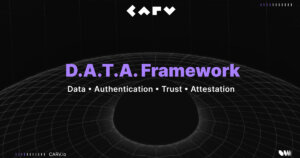 How the influx of Terra projects resulted in the Osmosis exploit with founder Sunny Aggarwal – SlateCast #7
How the influx of Terra projects resulted in the Osmosis exploit with founder Sunny Aggarwal – SlateCast #7 How the influx of Terra projects resulted in the Osmosis exploit with founder Sunny Aggarwal – SlateCast #7
CryptoSlate's Akiba talks to Osmosis founder Sunny Aggarwal about the future of Osmosis, the fallout from Terra, bug bounties, and issues with building in a bull market.
CryptoSlate’s Akiba talks to Osmosis founder Sunny Aggarwal about the future of Osmosis, the fallout from Terra, bug bounties, and issues with building in a bull market.
In the interview, the founder revealed the catalyst for the exploit that caused the Osmosis chain to be halted last month. The bug was caused by the Osmosis user interface not being tested with an update that had passed testing in the CLI.
Sunny explained the need to upgrade the chain to facilitate the inpouring of Terra builders led to mistakes in testing which resulted in the bug in question.
Moving on, Sunny disclosed that
“Almost all the exploiters have actually returned money and one of the exploiters lost a lot of the money to slippage… but the dev team are going to cover the rest of it… users are going to be made whole.”
Watch the full interview on our YouTube channel and subscribe to CryptoSlate Edge to get early access to content before it goes live on the CryptoSlate website.








 Elon Musk
Elon Musk 






































































 OSMO
OSMO